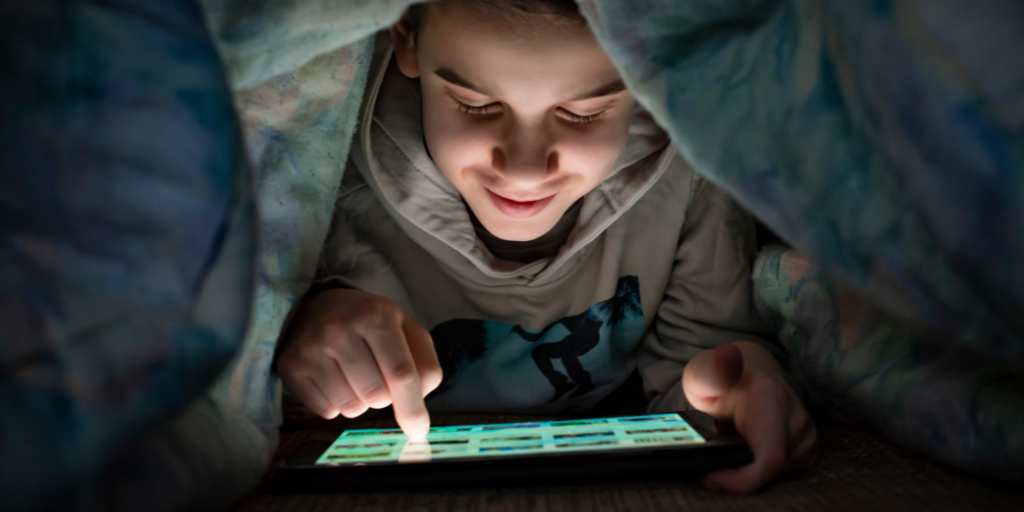
Sleep. That precious thing most parents don’t get enough of. Sleep can impact everything from brain performance, to mood, to mental and physical health. Our children aren’t getting enough sleep, either, and screens are one of the prime suspects. But how does screen time affect sleep?
To help you get a handle on how screen time may be messing with your child’s shut-eye, here’s a rundown on how screens impact sleep, the negative consequences of too little sleep, and what you can do to help your kid get more Zzzs.
You know sleep is important, but just how many hours are enough for your child? According to the American Academy of Pediatrics, here is how much sleep to aim for, based on your child’s age:
Not getting enough sleep can impact kids in a variety of ways, including:
The relationship between mental health and sleep goes both ways. Not only can poor sleep lead to issues like depression and anxiety, but having mental health problems in the first place can also negatively impact sleep.
Lack of sleep has been shown to cause impulsivity, stress, and aggressive behavior. It can also negatively impact your child’s ability to behave positively in social environments, like impairing their ability to solve conflict.
Studies have shown that children who get insufficient sleep also have impaired cognitive functions such as decision-making, working memory, and learning.
Poor sleep may contribute to growth issues and increased frequency of illnesses.
Studies have overwhelmingly shown a negative association between screen use and sleep. Here are some of the ways that screen time may impact your child’s sleep:
A study reported in the journal Child Psychiatry & Human Development found associations between electronic media use and anxiety and depression in young people, although the direction of causality in their study remains unclear. Given the way mental health and sleep are intertwined, it’s certainly worth taking notice.
You can’t sleep while scrolling on TikTok because you lose track of time. Similarly, many kids fail to get to sleep at a decent hour because they’re up too late on their devices.
Screens, including their much-maligned blue light, can not only impact your child’s ability to fall asleep, but they can also negatively impact sleep quality. In addition, studies have shown that use of interactive screen-media, such as video games and mobile devices, can cause your child to wake up in the middle of the night.
Screen addiction is a non-diagnostic term that is thrown around perhaps a bit too casually. However, a newly recognized disorder known as Internet Gaming Disorder (ISG) has been linked to sleep problems.
For parents worried about their children’s slumber, the good news is there are effective strategies to minimize the negative impact that screens have on your kid’s sleep.
Some tips:
Use of screens contributes to poor sleep, which can have negative consequences for your child. By encouraging healthier bedtime habits, you can minimize the impact screens have on your child’s sleep.